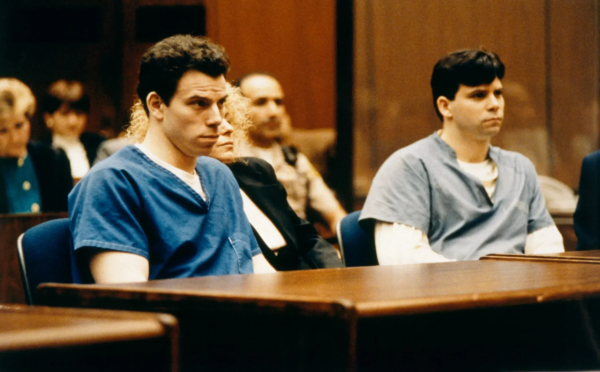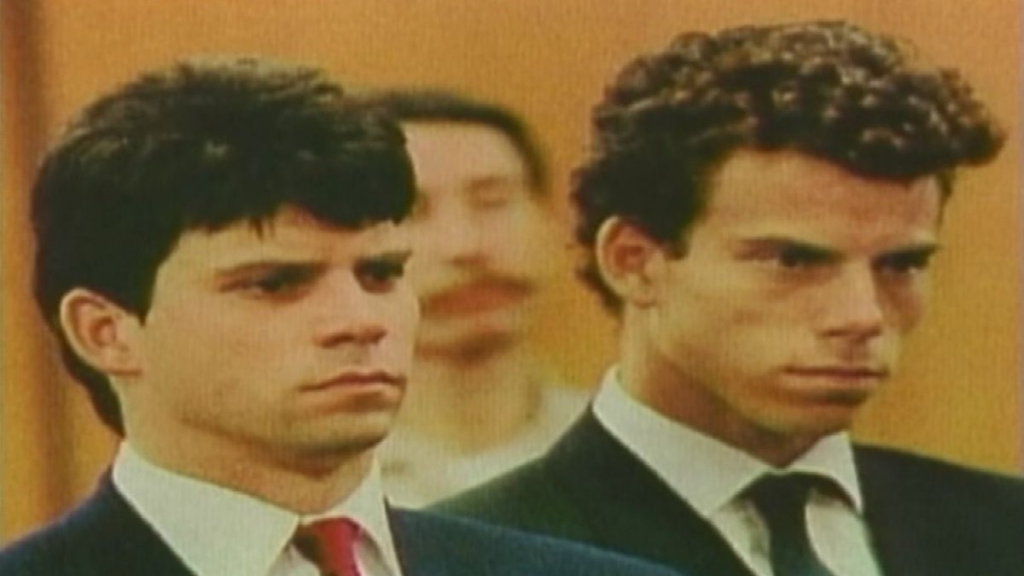
Ex-Menendez Brothers Father Raped Menudo Member 2023
One of the first televised criminal trials to captivate a daily national audience was this compelling case. Three decades ago, two wealthy young men were charged of murdering their parents by entering the den of their Beverly Hills mansion with shotguns and firing more than a dozen shots at them while they sat on the couch.
In 1996, Lyle and Erik Menendez were convicted of murdering their mother, Mary Louise, a former beauty queen known as Kitty, and their father, Jose, a music mogul, despite defense claims that the brothers had been sexually molested by their father for years and had killed out of terror.
Table of Contents
Roy Rosselló, a former Menudo member, alleges that Jose Menendez sexually molested him as a youngster.
On Tuesday’s “Today” show, NBCUniversal’s streaming service Peacock announced a three-part docuseries that will run on May 2. Robert Rand and Nery Ynclan’s “Menendez + Menudo: Boys Betrayed” focuses on Rosselló. He mentions an interaction with Menendez and separate incidences of sexual abuse by one of Menudo’s former managers while he sang with the group.
The 1990s-era Los Angeles County District Attorney’s Office didn’t respond to a request for comment early Tuesday morning.

Rosselló told “Today” that Jose Menendez drugged and assaulted him during a 14-year-old visit to his New Jersey home.
“That’s the man here that raped me,” he stated in a docuseries segment, pointing to Menendez in a photo. “The pedophile.”
“It’s time for the world to know the truth,” he adds.
RCA Records executive Menendez signed Menudo.
Menudo sexually molested Rosselló. In the four-part HBO Max docuseries “Menudo: Forever Young,” other band members said they were verbally, physically, emotionally, and sexually tortured. The allegations have never been prosecuted.
Milton Andersen, 88, one of Kitty Menendez’s brothers, used an expletive to call Rosselló’s claim untrue and urged the brothers should not be released.
Andersen denied that his brother-in-law was a sexual predator and opposed reopening Lyle and Erik Menendez’s case.
“They do not deserve to walk on this earth after killing my sister and brother-in-law,” he stated.

Because the brothers were wealthy, the Menendez murders garnered attention. The killings occurred when Lyle Menendez attended Princeton. Erik Menendez wanted a tennis career. Prosecutors portrayed them as coldblooded killers seeking free access to their parents’ $14 million wealth.
Five shots hit Jose Menendez, one in the back of the skull. According to the brothers, Lyle Menendez walked to his car, reloaded his 12-gauge shotgun, and shot his mother again.
The Mafia was initially suspected of the murders. After the brothers bought Rolex watches, condominiums, sports vehicles, and other stuff in the months after the murders, detectives focused on Lyle, 22, and Erik, 19.
After the revelation of taped discussions the brothers had with their psychotherapist, they became prime suspects.
As the first trial approached, the brothers’ defense lawyers claimed that Lyle Menendez had confronted his father about the family’s sex abuse secrets, that his father had become enraged and threatening, and that the brothers had killed to protect themselves.
The defense contended that the murder charges should be lowered to manslaughter because the defendants feared their lives were in danger.
The Court TV cases started a new era of courtroom drama. The first group of jurors believed the brothers, who had movedly spoken about their mistreatment. The testimony split jurors between manslaughter and murder verdicts, causing the mistrials.
When another jury decided the brothers’ fate, circumstances had changed. The judge barred cameras and severely limited witness testimony and parental evidence. When Erik Menendez entered the testimony, prosecutors, who had ignored the brothers’ molestation charges at the prior trials, cast doubt on the abuse.
“Can you give us the name of one eyewitness to any of the sexual assaults that took place in that home?” the lead prosecutor, David Conn, repeatedly questioned Erik Menendez as he clicked through the brothers’ residences.
Menendez repeated saying “No,” according to testimony transcripts.
The defense only presented the brothers who called Jose Menendez a sexual predator.
As the trial concluded, Stanley Weisberg determined that the “abuse excuse” could not be utilized. Jurors had to choose between acquitting the brothers or convicting them of murder.
They followed.

Psychological abuse was suspected. Afterward, juror Lesley Hillings told The Los Angeles Times, “I think most of us believed that.” Sex abuse? We’ll never know if that’s true.”
Even with Rosselló’s fresh charge, the Menendez brothers’ lawyers would struggle to reopen the case, legal experts say.
Laurie Levenson, a criminal law professor at Loyola Law School in Los Angeles who analyzed the Menendez case in the 1990s, called Rosselló’s information “too little, too late.”
Levenson said the jury didn’t trust the brothers’ sex abuse claims in the second trial.
“Rosselló’s account could be something you could file with the court and claim that it’s newly discovered evidence and that it would have made a difference in the case,” she said. They must prove that.
In “Today,” criminal defense lawyer Alan Jackson said the brothers had “a big mountain to climb.” Still, Rosselló’s claim gave the brothers a “glimmer of hope.”In the “Today” docuseries clip, Rosselló claimed of Menendez, “I know what he did to me in his house.”
Rosselló’s account may affect defense lawyers’ efforts to get the brothers a fresh trial after their appeals were refused.
After the killings were discovered in 1989, the criminal prosecutions hinged on the brothers’ reliability and whether sex abuse was a mitigating element. In 1993, two hung juries and mistrials concluded the first prosecution. Two years later, the brothers were retried and convicted of first-degree murder and sentenced to life in prison.
